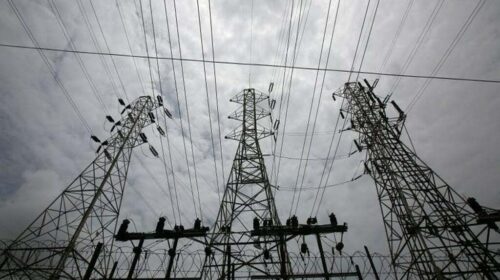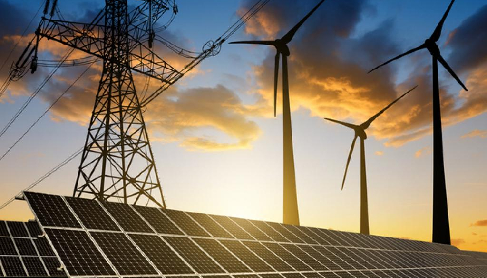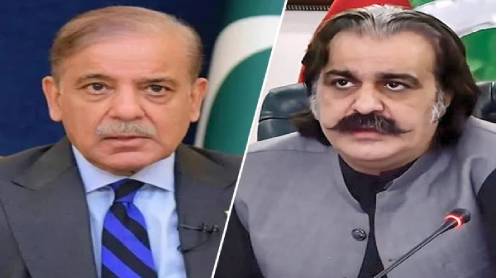he National Electric Power Regulatory Authority (Nepra) Tuesday agreed, in principle, to increase Discos’ tariff by Rs 3.09 per unit for December 2021 under monthly Fuel Component Adjustment (FCA) mechanism to recover additional cost of Rs 26.6 billion from consumers except lifeline consumers.
This understanding was reached between the regulator (Nepra) and power purchaser- Central Power Purchasing Agency- Guaranteed (CPPA-G) at a public hearing conducted by the Authority, comprising Chairman, Tauseef. H. Farooqi, Member Sindh, Rafique Ahmad Shaikh, Member Balochistan, Rehmatullah Baloch and Member KP, Maqsood Anwar Khan.
CPPA-G had sought positive adjustment of Rs 3.12 per unit for December, based on its own calculations including impact of Rupee depreciation.
According to Nepra’s tariff section, CPPA-G claimed total FCA cost of Rs 72.761 billion for December 2021 against reference cost of Rs 40.720 billion, showing extra cost of Rs 32.042 billion. The main reason for the extra cost was higher prices of fuel in the international market.
The impact of higher coal price was Rs 11.745 billion, HSD, Rs 3.529 billion, RFO, Rs 3.663 billion, gas Rs 4.176 billion, RLNG, Rs 7.875 billion, nuclear, Rs 923 million, Iranian electricity, Rs 107 million, mixed Rs 17 million and baggasse Rs 5 million. In addition, CPPA-G also sought previous adjustment of Rs 2 billion.
The cost of Wapda hydel was Rs 5.97 per unit whereas cost of hydel IPPs was Rs 13.58 per unit. There are total 23 hydel projects including Tarbela, Ghazi Barotha and Mangla dam.
In reply to a question raised by Chairman Nepra, tariff section official noted that had the prices of generation mix remain unchanged there would have been negative impact of Ps 0.70 per unit.
Nepra officials contended that electricity generation increased by 17 per cent in December 2021. It was also noted that consumption by industries posted a growth of 19 per cent in December while winter package showed growth of 5.5 per cent.
Member Sindh, sought the reasons for the decline in share of wind and solar in overall generation and share of wind and solar in total generation.
He argued that generation cost could have been far less if 13 projects of wind and solar of 600 MW whose cost was Cents 3.5 per unit were completed. He added that there could have been a saving of Rs 14 per unit as compared to RFO generation cost if these 13 projects were established.
Member Sindh also raised questions on non-availability of RLNG as per requirements of power plants due to which additional cost of Rs 2.609 billion will be passed on to the consumers. It was noted that per unit of additional cost of Rs 2.609 billion has been calculated at Paisa 31.
The Authority decided to disallow Rs 0.024 per unit on account of adjustment by tariff, Rs 0.0006 per unit due to deviation from EMO totaling to Rs 4.18 million, and Rs 0.0012 per unit has been adjusted on account of technical, energy losses etc.
The total energy generated recorded at 8,827.05 GWh at a basket price of Rs 8.2430 per unit. The total cost of energy was Rs 72.761 billion.
The CPPA-G also sought previous adjustment/supplemental charges of over Rs 2.052 billion. The sale to IPPs was also reduced by 30.58 GWh, the price of which was Rs 967.20 million (Paisa 31.6258 per unit) while the reduction in transmission losses was recorded at 266.56 GWh.
According to the CCPA-G data, net electricity delivered to Discos in December 2021 was 8,529.91 GWh at a rate of Rs 8.6573 per unit, total price of which was Rs 73.846 billion.
After adjustments, Nepra team proposed an increase of Rs 3.09 per unit in FCA for December 2021. CPPA-G and NPCC did not raise any objection to increase proposed by Nepra team. The FCA adjustment of Rs 3.09 per unit for December will replace Rs 4.3020 per unit of November 2021.
CFO, CPPA-G Rehan Akhtar also revealed that the government has decided to restart Habib Ullah Coastal projects of Balochistan, saying a summary in this regard is being sent to the ECC.
The plant will operate on 35 per cent RLNG and 65 per cent indigenous gas. The plant will operate on take or pay for nine months and three on take and pay mechanism as and when available basis. The plant’s contract will be renewed for five years on the same tariff, which was approved under 1994 policy. Both parties have already initialed on terms and conditions.





